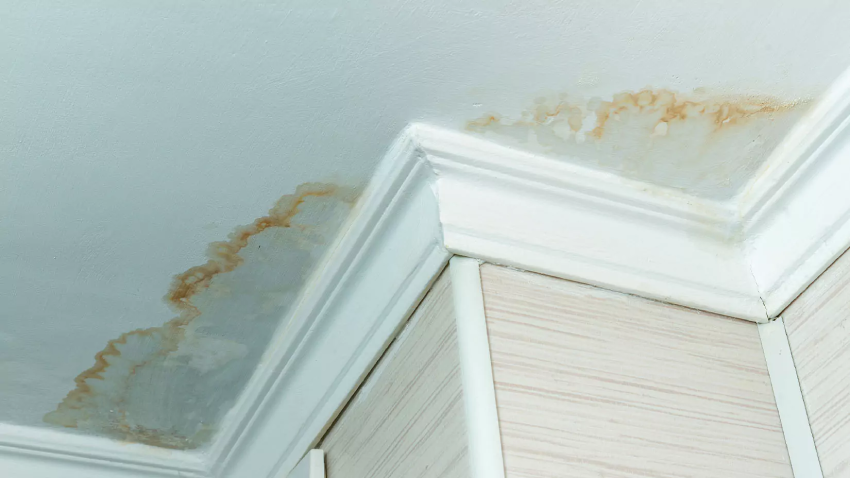The Process of Water Damages Clean-up: Ensuring Your Home Is Recovered Successfully
Water damages can be a difficult challenge for home owners, necessitating a thorough and structured cleanup process to bring back security and capability. Originally, a comprehensive assessment is crucial to determine the level of the damage and establish the ideal removal measures. Following this, efficient water extraction techniques play a pivotal duty in minimizing additional injury. Nevertheless, the subtleties of drying, sterilizing, and ultimate reconstruction are just as essential and frequently forgotten. Recognizing these stages can make a considerable distinction in the result of your home's repair, prompting a closer consider what each action entails.
Assessing the Damage
Upon discovering water damage, the primary step is to completely examine the degree of the effect. This preliminary assessment is crucial, as it helps identify the necessary steps for efficient cleanup and reconstruction. Begin by inspecting the impacted locations, consisting of walls, ceilings, floors, and personal possessions, to recognize the source of the water intrusion, whether from flooding, leaks, or condensation.
Documenting the damages is essential for both insurance policy claims and planning remediation initiatives - damage restoration services. Use photographs and written notes to capture the seriousness of the damages, noting any kind of afflicted architectural components and products. Pay special focus to locations that might not be instantly visible, such as behind walls and under carpets, as hidden dampness can result in additional problems, consisting of mold development
In addition, analyze the timeline of the water exposure. The longer the products continue to be wet, the greater the possibility for damage. Comprehending the duration of direct exposure will notify the urgency of removal efforts. Inevitably, a detailed evaluation lays the groundwork for a successful water damage cleaning procedure, making certain that all affected areas are addressed properly and completely.
Water Removal Methods

Experts typically use submersible pumps for bigger volumes of water, which can rapidly ease flooding in basements or various other affected locations. For smaller sized quantities, wet/dry vacuums are usually used to extract recurring moisture from carpets and difficult surface areas. Additionally, making use of portable extractors enables targeted elimination in confined spaces or locations with fragile materials.
In circumstances of polluted water, such as sewer or floodwater, progressed removal methods may involve the usage of biohazard equipment to guarantee security and conformity with health laws. High-powered removal devices are critical in minimizing water retention in structural materials, which can lead to mold and mildew growth and architectural deterioration otherwise resolved without delay.
Inevitably, the performance of water removal strategies plays a crucial function in the overall success of the water damages clean-up process, laying the groundwork for subsequent repair initiatives.
Drying and Dehumidification
Once standing water has been effectively drawn out, the following crucial phase in the water damage clean-up procedure is drying out and dehumidification. This step is vital to prevent more damages and mold and mildew development, which can happen within 24 to two days in wet atmospheres.
To attain efficient drying out, customized tools such as industrial-grade air moving companies and dehumidifiers is employed. Air moving companies flow air across wet surfaces, improving dissipation prices, while dehumidifiers decrease moisture levels airborne, promoting a helpful atmosphere for drying. The mix of these tools makes sure that wetness is attracted out from home furnishings, floorings, and wall surfaces, permitting them to completely dry extensively.
It is very important to keep track of the drying process closely. Professionals usually use moisture meters to evaluate the moisture web content in numerous products, making certain that all affected areas reach appropriate dryness levels. This meticulous strategy assists to prevent concealed wetness pockets that can bring about structural damage or undesirable mold and mildew growth.

Cleaning and Sanitizing
After the drying out and dehumidification phase is complete, the following crucial step in water damage clean-up is cleaning up and sterilizing the impacted locations. This process is critical to stop the development of mold and mildew, germs, and other microorganisms that prosper in wet environments.
The cleaning stage typically entails removing any type of particles, dirt, and contaminants from surface areas making use of specialized cleaning up representatives. For tough surface areas, a combination of soap and water or industrial cleaning products is usually used. Soft products, such as upholstery and rugs, might call for a lot more comprehensive cleansing approaches, consisting of heavy steam cleansing or deep extraction techniques, to guarantee thorough hygiene.

Disinfecting adheres to cleansing, utilizing EPA-approved disinfectants to eliminate damaging microbes. This step is crucial, especially in locations that might have come into call with floodwaters or sewage, as these resources can present serious health threats.
Additionally, it is necessary to resolve any continuing to be smells, which may need making use of smell neutralizers or advanced techniques like ozone treatment. Appropriate cleansing and disinfecting not just recover the safety and security and hygiene of your home however additionally lay the foundation for effective reconstruction and repair services in succeeding stages of the water damage cleanup procedure.
Repair and Fixings

When the analysis is complete, repair initiatives can start. This normally includes fixing or replacing broken products, making sure that all work adheres to neighborhood building regulations and requirements. If drywall has actually been jeopardized, it will certainly need to be eliminated and replaced with brand-new product. Additionally, flooring might call for comparable interest, depending upon the degree of water exposure.
It is vital to engage experienced repair experts during this procedure, as they have the expertise to handle complicated repair work effectively. They can help mitigate possible link future concerns, such as mold and mildew development or structural instability, thus ensuring a safe and habitable living setting. Ultimately, effective repair and repair services recover the home's stability and boost its total value.
Final Thought
Finally, the process of water damages clean-up is crucial for restoring a home to its pre-damage condition. Each stage, from examining the damages to implementing reliable water extraction methods, adhered to by detailed drying out, sterilizing, read what he said and necessary repair services, plays a necessary duty in ensuring safety and conformity with structure standards. Efficient execution of these actions not only minimizes instant damage but additionally boosts the long-term honesty and worth of the building.
Water damages can be a daunting difficulty for house owners, requiring a structured and careful cleanup process to restore safety and capability. Inevitably, a detailed assessment lays the foundation for a successful water damage cleaning procedure, making sure that all affected locations are resolved efficiently and thoroughly.
Effective water extraction methods are important in reducing damages and preventing further difficulties complying with a water intrusion event.In conclusion, the process of water damages cleaning is vital for bring back a home to its pre-damage condition. Each phase, from examining the damages to implementing reliable water extraction techniques, adhered to by detailed drying out, sterilizing, and essential repair work, plays a crucial duty in ensuring safety and compliance with structure standards.
Comments on “Water Damage Cleanup Experts Offering Prompt and Efficient Solutions”